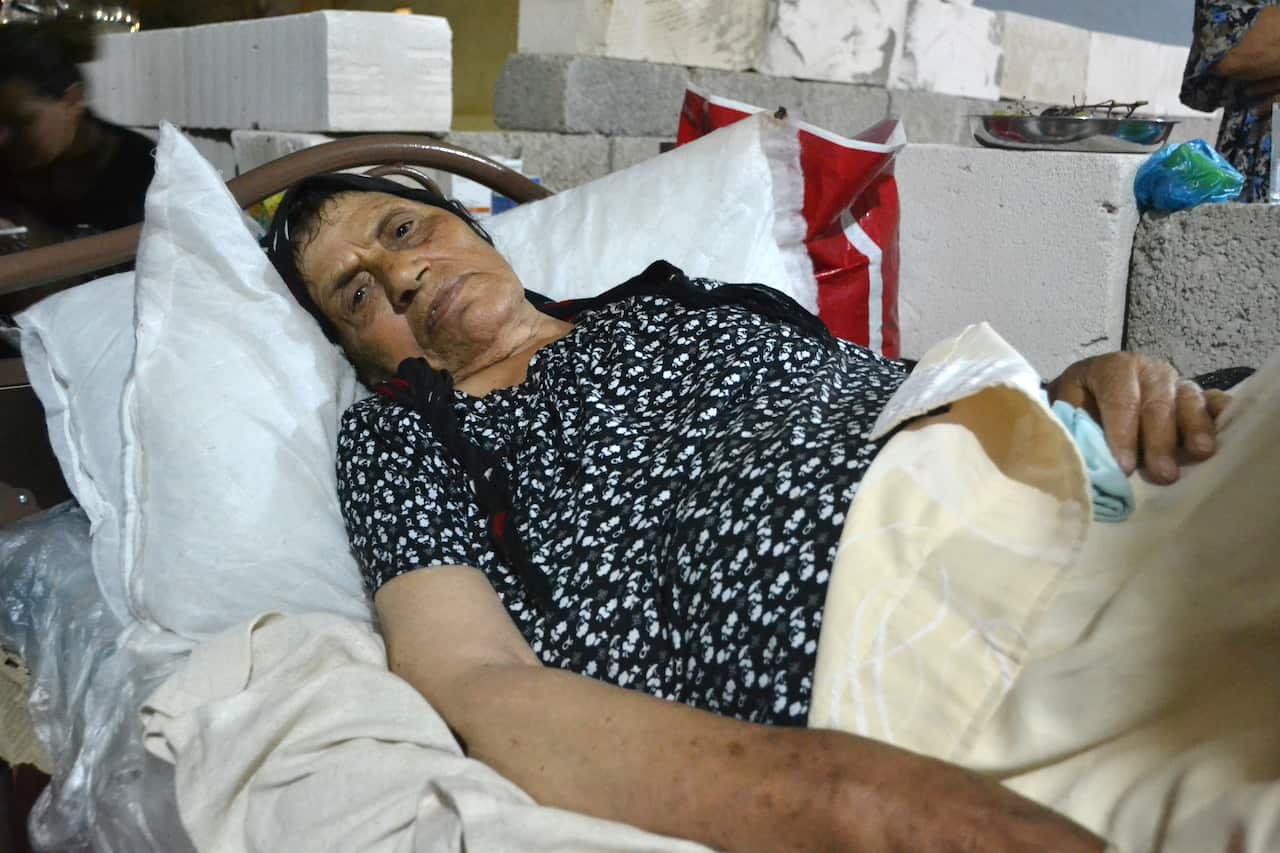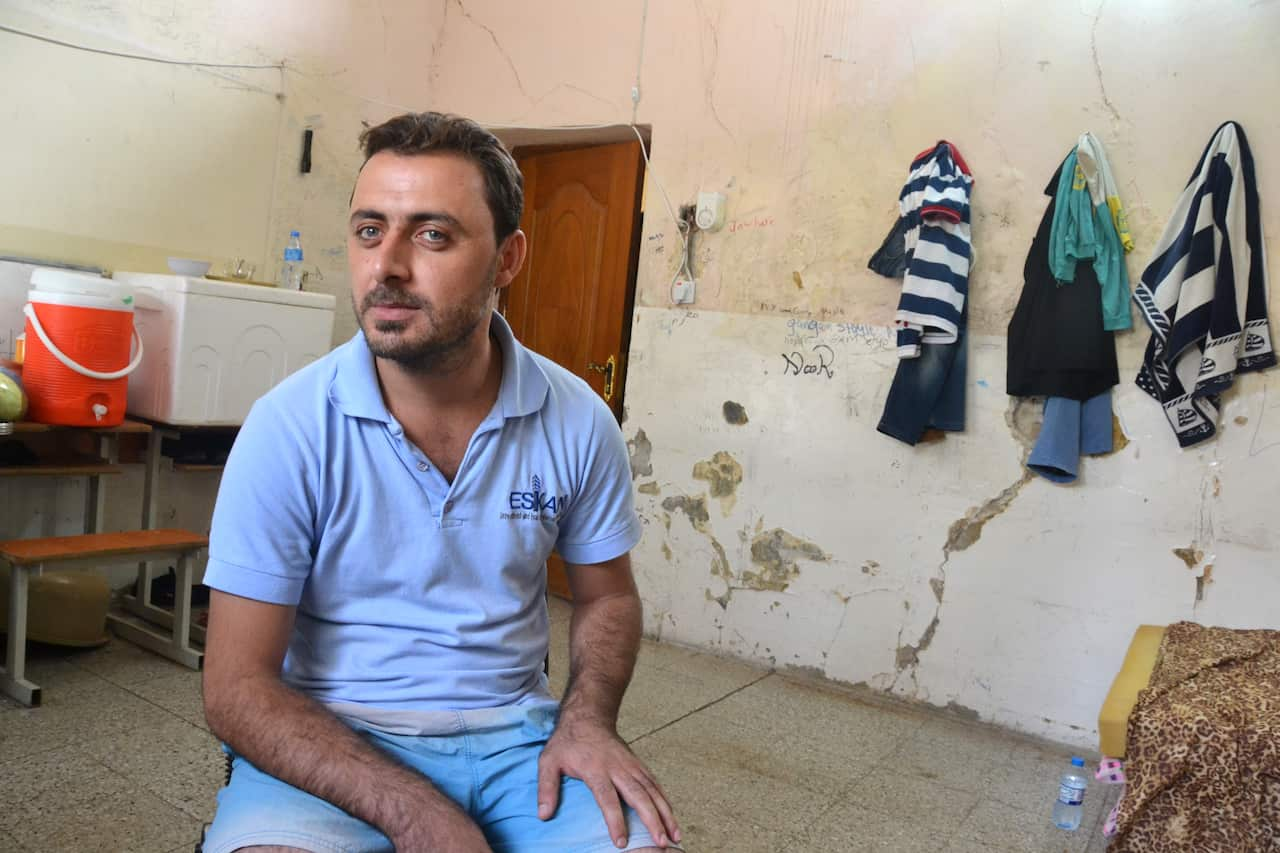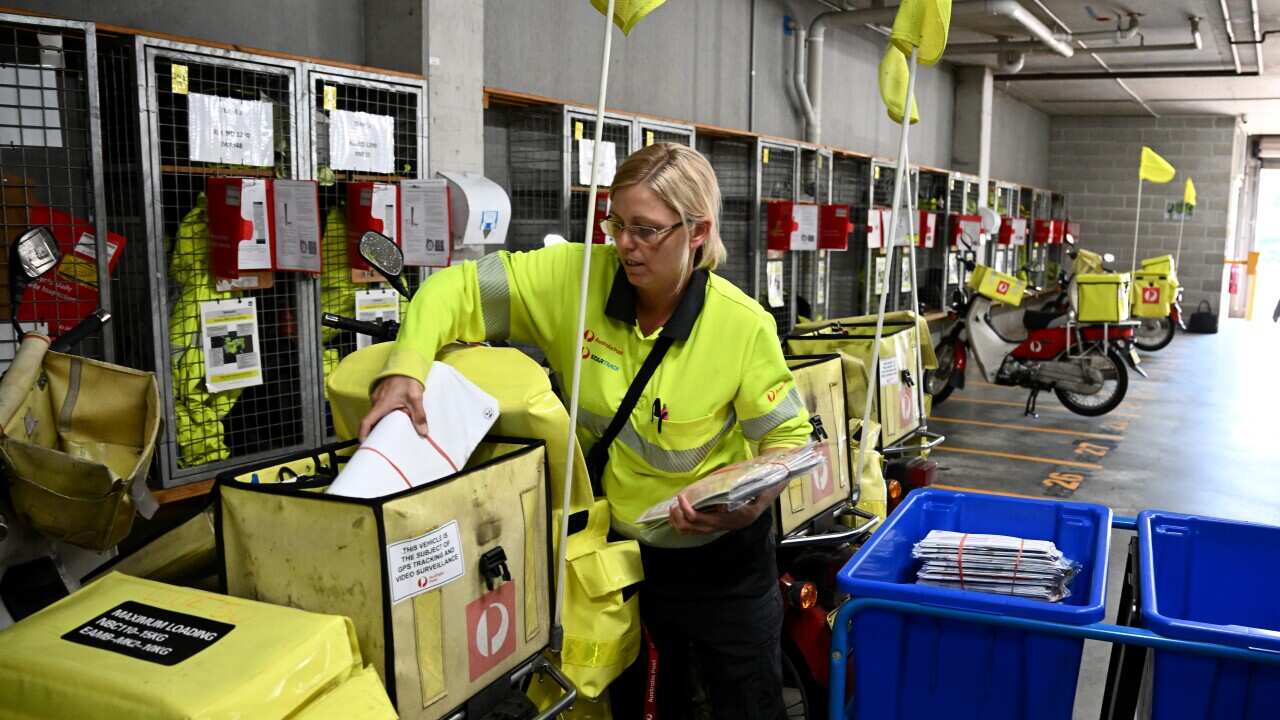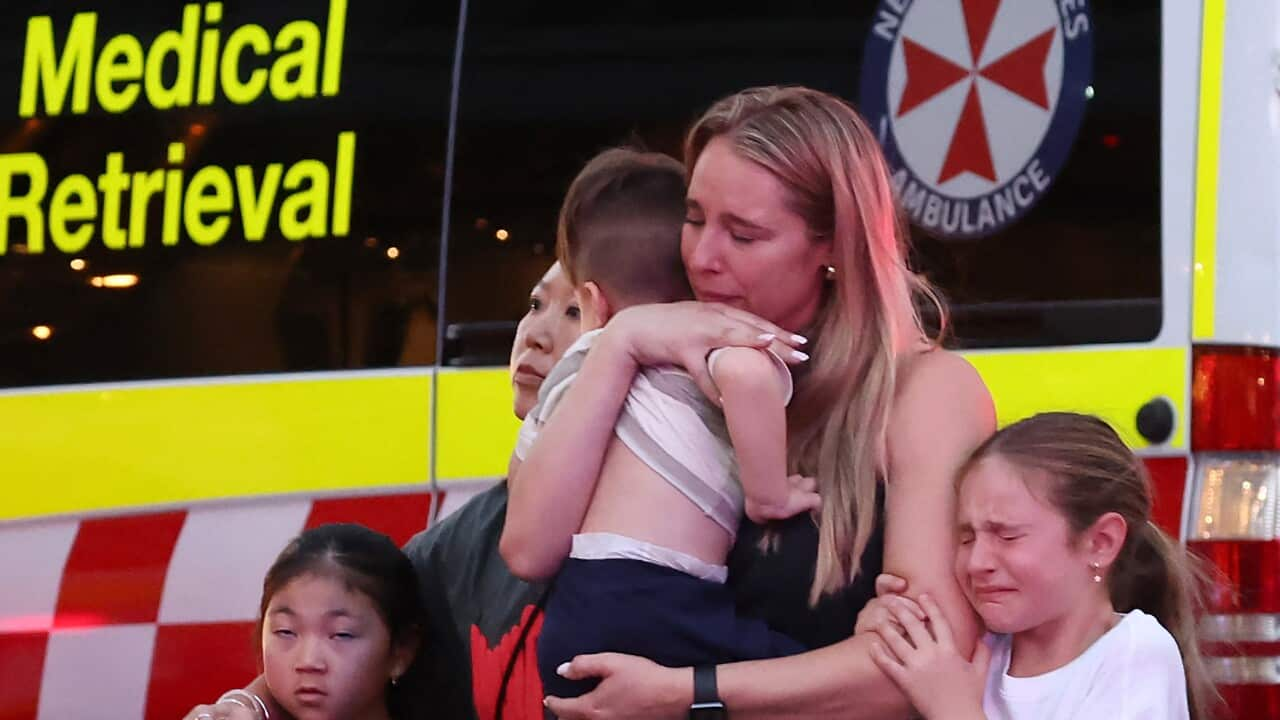ERBIL, Iraq — For ten long days, Ghazala Elyas lived under the self-proclaimed caliphate of the group that calls itself the Islamic State.
Mrs Elyas, 80, is in remission for cancer, but remains bed-ridden for a host of other conditions, including diabetes. She recounted her story from a half-built apartment block in Ankawa, the Christian quarter of Erbil, the capital of Iraqi Kurdistan. She shares the space with more than 500 others from the majority Christian village of Karamlish, which she finally evacuated less than a week ago.
Ankawa has seen its population explode with the arrival of an estimated 32,5000 internally-displaced persons (IDPs) since the IS captured Mosul, 92 kilometres west of Erbil, in June and subsequently set about taking over numerous nearby towns and villages as well.
When all but 11 of Mrs Elyas’s fellow villagers fled Karamlish on the night of August 6, she and her sister-and-law locked the doors and hoped for the best.
They held out for five days, oblivious of what was going on outside, until they ran out of food and water and were forced to allow the militants into their home.
The IS “boss”, as Mrs Elyas called him, was respectful towards them, she said. “He said he would bring us anything we needed. We asked for food and water.”
“But Daesh [a derogatory term based on the Arabic acronym for ISIS] had done terrible things to our village,” she said. “They had destroyed the church and all its crucifixes and statues.”
They had also looted the abandoned homes of anything of value and attempted to persuade the remaining Christians in the village to convert to Islam with promises of money and homes in Mosul. “They tried to bribe us,” said Nadar Eleya, 30, who stayed in the village with his brother and mother after the latter refused to give up her home. After ten days, the remaining Christians were given the choice to either convert, pay the jizyah tax for religious minorities and submit to inferior status under sharia law, or leave town with only the clothes on their back. Mrs Elyas did not think twice. “I love Jesus Christ,” she said. “Not Mohammad.” Along with her sister-in-law and seven others, including Mr Eleya and his family, she left. No one knows what has happened to the two who remained.
After ten days, the remaining Christians were given the choice to either convert, pay the jizyah tax for religious minorities and submit to inferior status under sharia law, or leave town with only the clothes on their back. Mrs Elyas did not think twice. “I love Jesus Christ,” she said. “Not Mohammad.” Along with her sister-in-law and seven others, including Mr Eleya and his family, she left. No one knows what has happened to the two who remained.

Ghazala Elyas, an Iraqi Christian, in a half-built building in Ankawa, the Christian quarter of Erbil, Iraqi Kurdistan. Mrs Elyas lived under the Islamic State for five days before fleeing the village of Karamlish. (Matthew Clayfield)
The UN has described the IDP situation in Iraqi Kurdistan as a “humanitarian tragedy,” with close to 700,000 displaced people currently being hosted in the region. Kurdistan’s autonomous regional government, its finances already under pressure after Baghdad froze its share of the federal budget in February following a dispute over oil revenues, now faces the added strain of increased funding for the region’s Peshmerga forces as well as the cost of hosting the displaced.
And “hosting” is putting it charitably. “Too many [IDPs] are living in woeful conditions,” UNHCR spokesperson Adrian Edwards said last week. “While accurate figures are not expected until early September when registration is complete, we estimate that hundreds of thousands are living in unfinished buildings, mosques, churches, parks and schools.”
Indeed, the apartment building in which Mrs Elyas now lives, across the road from Ankawa’s St. Joseph’s Church, is less a proper building than the mere superstructure of one: there are no windows, no doors and no walls beyond the UNHCR tarpaulins that have been rigged up to provide some semblance of privacy. Children play football in the cavernous atrium at the building’s concrete heart while their elders look down on them from perilous second- and third-story drops. “They know that Daesh is bad,” one man said, “but we try not to tell them why.”
The older children are not so lucky. “I wasn’t scared when Daesh came,” one scoffed at me.
“Liar,” said his friend. Both laughed.
There is a surprising amount of laughter about the place. Laughter and a deep sense of empathy for others. It is remarkable how quickly people in these situations play down their own suffering in comparison to that of others.
“The building isn’t completed and we have had some problems with getting enough water for everyone,” one of the building’s volunteer supervisors, also from Karamlish, said. “But we have a lot of space, it is cool during the day and there is no timetable for our departure. The people in the schools have it much worse.”
Sitting in a sweltering little schoolroom that somehow manages to sleep ten people, Tofee Alabdal could not agree more. “We live like dogs,” he said. Officials estimate half of Iraqi Kurdistan’s 5,746 schools are now sheltering displaced people or Peshmerga forces. The school term, which was due to start on September 10, has already been pushed back by at least a month. But it cannot be pushed back indefinitely.
Officials estimate half of Iraqi Kurdistan’s 5,746 schools are now sheltering displaced people or Peshmerga forces. The school term, which was due to start on September 10, has already been pushed back by at least a month. But it cannot be pushed back indefinitely.

Tofee Alabdal, an Iraqi Christian, in a classroom of the 11 September School in Ankawa, the Christian quarter of Erbil, Iraqi Kurdistan. Mr Alabdal fled Qaraqosh on August 6, the night it was captured by the Islamic State. (Michael Clayfield)
“The world needs to get us out of here,” Mr Alabdal, 27, said. “We feel like we are in jail.”
Mr Alabdal is one of 229 people—83 of them under the age of 18—currently living in Ankawa’s 11 September School, a hot, cramped warren of corridors and classrooms several streets away from the half-built apartment building. He fled Iraq’s largest Christian city, Qaraqosh, 32 kilometres south of Mosul, on the night of August 6 after realising that the Peshmerga forces would not be able—or willing, he suggested—to hold it. “I got out early,” he said.
Others waited until the last minute. Bashar Mansor was helping his wife and six children into the car when he heard the Arabic Takbir—the cry of “Allahu Akbar”—coming from only a few streets away.
He had placed too much confidence in the Peshmerga and their reputation as fierce fighters, he said. Watching them retreat while civilians were still in the city shook his faith to the core.
But it was an experience he had on the outskirts of the village—when a Peshmerga fighter whose own car had broken down demanded the family hand over their toolkit and leave without it—that put paid to any respect he once had for them.
“I don’t trust anyone now,” he said. “Not the Iraqi army, not the Peshmerga, and not the United States. I don’t trust any of them to protect us.”
It is a common sentiment. “We had a lot of faith in the Peshmerga,” Mr Alabdal said. “They told us: ‘No one can come to Qaraqosh.’ But they left the city at 10pm and by 2.30am it was in Daesh control. The Peshmerga destroyed us.”
“This is the end of Christians in Iraq,” he said. “There will be no Christians in Iraq in ten years.” But the question of where the Christians will go — not to mention the thousands of internally-displaced Yazidi Kurds and Sunni Arabs who have also been pushed out of their communities — looms large. While some remain confident that they will one day go home— “Insha’Allah,” as Mrs Elyas put it — most either don’t expect to, are scared about what they might find there if they do, or are simply fed up with living in a country in which they believe they will continue to be targets of sectarian hatred.
But the question of where the Christians will go — not to mention the thousands of internally-displaced Yazidi Kurds and Sunni Arabs who have also been pushed out of their communities — looms large. While some remain confident that they will one day go home— “Insha’Allah,” as Mrs Elyas put it — most either don’t expect to, are scared about what they might find there if they do, or are simply fed up with living in a country in which they believe they will continue to be targets of sectarian hatred.

Iraqi Christians in a half-built apartment building in Ankawa, the Christian quarter of Erbil, Iraqi Kurdistan. Five hundred people from the Christian village of Karamlish are currently being housed in this building. (Matthew Clayfield)
Many hold out hope that Europe will accept them on the basis of their faith. France has already evacuated 40 Christian refugees from Erbil and anticipates that many more will arrive on its soil in the coming weeks. Both the school and the apartment building seem at times to run on the hope that their residents will be among the refugees on those flights. “Hearing that France has agreed to take Christian refugees can get you through the day,” Mr Alabdal said, “even if you’re not one of the people they have agreed to take.”
But he said there had been significant pushback from the Chaldean Catholic Church to the idea of Iraq’s Christian emigrating. Chaldean Patriarch Louis Sako has described the desire of many to leave as a “calamity” that will “[dissolve] the history, heritage and identity of these people into void.”
Mr Alabdal accused the Patriarch of conspiring with neighbouring states to prohibit Christian emigration across their borders and said: “The Patriarch doesn’t want us to leave because we are an ‘original people’. But anyone trying to stop us from leaving is against us.”
Whatever the case, emigration remains an almost impossible prospect for most.
“At the moment, UNHCR’s focus is on getting life-saving emergency aid to the displaced people where they are now,” the organisation told SBS in a statement. “Only around 80,000 resettlement places are made available each year, which is less than one per cent of the global refugee population. Since resettlement remains a solution for only a small fraction of the world’s displaced people, it is important we help refugees find care and protection wherever they find a place of safety.”
An added problem for many of the IDPs in Ankawa — Christian or otherwise — is that they simply don’t fit the UNHCR’s very specific requirements for resettlement, the most important of which, in this case, is that they have crossed an international border and thus made the all-important transformation from IDP to refugee.
This makes commitments like that of France all the more important and commendable. But by focusing solely on one group or another, Western governments also expose themselves to charges of sectarianism and racism and, much more importantly, leave countless others at risk for what are essentially arbitrary reasons.
“There may also be separate arrangements bilaterally, where countries may offer admission or other entry arrangements to certain groups of people,” the UNHCR statement said.
“[But the] UNHCR maintains that it is important that such bilateral humanitarian initiatives benefit all population groups at risk of persecution.”
Matthew Clayfield is a freelance foreign correspondent who has worked in Africa, Asia, Europe, Latin America, the former Soviet Union and the Middle East.









